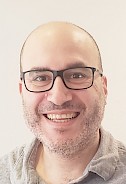 Name: Andres Trostchansky, PhD
Name: Andres Trostchansky, PhD
Institution/Company: Facultad de Medicina, Universidad de la Rupublica, Uruguay
Educational Background: BA in Biochemistry
MSc in Chemistry
PhD in Chemistry
Bio: I have reached experience in measuring reactive species formation in different cell types and analyzing the mechanisms of action of lipid-derived products leading to this effect. In addition, we gained experience in using Mass Spectrometry for lipid analysis and their derived effects. At this moment, lipidomic studies are being applied in different cell and animal models to correlate the levels of lipid-derived products with the onset, progression, and modulation of diseases or drug treatments.
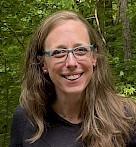 Name: Nadine Hempel, PhD
Name: Nadine Hempel, PhD
Institution/Company: University of Pittsburgh / Hillman Cancer Center
Educational Background: 2021 - present Associate Professor. Department of Medicine, Division of Hematology & Oncology, UPMC Hillman Cancer Center, University of Pittsburgh School of Medicine, Pittsburgh, PA.
2015 - 2021 Associate Professor (tenure 2020). Departments of Pharmacology, and Obstetrics & Gynecology, Penn State Cancer Institute, Penn State Hershey College of Medicine
2012 - 2015 Assistant Professor (tenure-track). Nanobioscience Constellation, Colleges of Nanoscale Science and Engineering, SUNY Polytechnic Institute
2007 - 2011 Post-doctoral Fellow. Center for Immunology and Microbial Diseases, Albany Medical College
2004 - 2007 Post-doctoral Fellow. Department of Medicine, Duke University Medical Center, Durham, NC.
2004 Ph.D. Pharmacology. School of Biomedical Sciences, University of Queensland
1999 B.Sc. (Honours Class I) Physiology & Pharmacology. Department of Physiology & Pharmacology, University of Queensland
Field of Expertise: Grant Applications, Academia (RO1 Institution), Work/Life Balance, Women in Science
Bio: My research interests center on understanding molecular mechanisms that regulate metastasis and tumor recurrence, with the ultimate goal of identifying novel targets for therapy of advanced-stage disease. My work specifically focuses on the role antioxidant enzymes, redox signaling, and mitochondrial dynamics and function play during ovarian cancer progression. I am currently supported by the US National Institutes of Health (NIH/NCI) and Department of Defense Ovarian Cancer research program. I have mentored trainees at various career levels, including numerous junior faculty, 10 graduate students, 6 post-docs, 4 medical students and 10 undergraduate/high school students. My mentoring philosophy is based on treating my mentees as scientific equals and fostering their passion for research, curiosity and their independent thinking skills, with the ultimate goal of establishing a true scientific peer relationship.
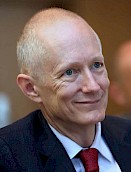 Name: Michael Davies, BSc, PhD
Name: Michael Davies, BSc, PhD
Institution/Company: University of Copenhagen
Educational Background: BSc and DPhil in Chemistry, University of York, UK
Post-doc work in Biochemistry, Brunel University, UK
University Lecturer, University of York, UK
Group Leader, Heart Research Institute, Syndey, Australia
Director, Heart Research Institute, Sydney, Australia
Professor and Novo Nordisk Laureate Grant Holder, University of Copenhagen, Denmark
Field of Expertise: Academia (PUI Institution), Academia (RO1 Institution)
Bio: I have pioneered studies on the formation and subsequent reactions of oxidants and other reactive species with proteins, DNA and carbohydrates, and the role of such reactions in biological damage. I have made major contributions to the field of oxidants and oxidative damage. My work on protein modification and the detection and reactions of reactive intermediates is recognised nationally and internationally and resulted in multiple awards and election to a number of prestigious leadership positions in scientific societies.
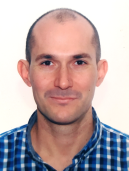 Name: Ruben Quintana Cabrera, PhD
Name: Ruben Quintana Cabrera, PhD
Institution/Company: CSIC (Spanish Research Council)
Educational Background: 2012 - Official European PhD Program in Neurosciences (Extraordinary Award) University of Salamanca
2007 - Official Master's Degree in Neuroscience (MEC quality mention) University of Salamanca
2006 - Degree in Pharmacy (BSc Pharm) University of Salamanca
Field of Expertise: Grant Applications, Academia (Spanish system)
Bio: My work aims to characterize molecular determinants of mitochondrial physiology: redox status, bioenergetics, metabolism, dynamics, ultrastructure and intercellular transfer, to provide novel therapeutic approaches, as former Marie Curie and current Ramón y Cajal fellow (PI) at the Cajal Institute (Spain). As major contributions, we described how γ-glutamylcysteine acts as a mitochondrial antioxidant and how mitochondrial cristae engage ATPase oligomerization and activity to prevent mitochondrial dysfunction, ROS and cell death.
 Name: Sanhita Roy, PhD
Name: Sanhita Roy, PhD
Institution/Company: LV Prasad Eye Institute
Educational Background: I did my PhD in protein chemistry from Indian Institute of Chemical Biology, India followed by a postdoctoral training in cell biology and immunology at Case Western Reserve University, USA. Currently I am a Senior Scientist (Associate Professor) at LV Prasad Eye Institute, Hyderabad, India and my lab works on innate immune responses in corneal infections. I guide PhD students and postdoctoral fellows along with short term trainees in the lab.
Field of Expertise: Grant Applications, Academia (PUI Institution)
Bio: I am a Senior Scientist at LV Prasad Eye Institute, Hyderabad, India. The main focus of my research is host-pathogen interactions and innate immune responses during microbial keratitis. I have several years of experience working with ocular bacterial infections. The current emphasis is on research with antimicrobial peptides as an alternative therapeutic intervention to combat antimicrobial resistance. I have over 40 peer-reviewed publications, with an h-index of 17. I also serve as an editorial board member and reviewer for several international journals. My lab has been funded with several national and international grants over the years.
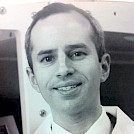 Name: Brian Polster, PhD
Name: Brian Polster, PhD
Institution/Company: University of Maryland School of Medicine
Educational Background: Biomedical Science, Cell Biology, Dementia
Field of Expertise: Grant Applications, Academia (RO1 Institution)
Bio: My laboratory studies basic subcellular mechanisms that govern neuroinflammation and cell death following brain injury, with an emphasis on nitric oxide and mitochondrial bioenergetic dysfunction. Past investigations have centered on control of mitochondrial integrity and quality by Bcl-2 family proteins and Drp1. Recent and active projects extend these interests to study the role of mitochondrial structural and functional remodeling in pro-inflammatory microglial activation, how microglial activation exacerbates neuronal injury, and translational strategies for targeting immunometabolism to promote brain recovery.
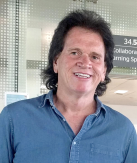 Name: Des Richardson, BSc, MSc, PhD, DSc
Name: Des Richardson, BSc, MSc, PhD, DSc
Institution/Company: Griffith University
Educational Background: I am a multi-disciplinary redox biologist, being a Medicinal Chemist, Biochemist, Pharmacologist, Cell & Molecular Biologist. I hold the Alan Mackay-Sim Distinguished Chair of Cancer Cell Biology and I am Director of the Centre for Cancer Cell Biology and Drug Discovery and Director of the Open Access Advanced Microscopy and Imaging Facility. My D.Sc. (2001) was submitted in the minimum 10 years after my Ph.D. (1991).
Field of Expertise: Grant Applications, Academia (RO1 Instutition), Writing Papers
Bio: I have published 463 articles/reviews/patents and on 91% of these I am first or senior/corresponding author (H-index-100; >44,000 cites over career; Google Scholar 11/7/22). This indicates an intimate contribution. Since 2016, I have authored 106 articles, reviews, patents, etc.; average ~18 publs./year.
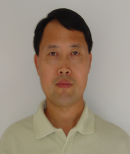 Name: Yong-Xiao Wang, MD, PhD
Name: Yong-Xiao Wang, MD, PhD
Institution/Company: Albany Medical College
Educational Background: Basic, translational drug discovery research in cardiovascular and respiratory biology and diseases, particularly focusing on redox signaling, cell calcium, and ion channels.
Field of Expertise: Academia (PUI Institution), Graduate Students, Postdoctoral Fellows, Junior Faculty
Bio: I have been a Full Professor in Department of Molecular and Cellular Physiology at Albany Medical College since 2006, had the intensive research training, expertise, leadership, motivation and experience, worked primarily on basic, translational and drug discovery research in cardiopulmonary biology and diseases, and particularly made many important findings in studies of redox signaling, cell calcium, and ion channels. Serving as the Principal Investigator, I have/had a number of NIH research awards, AHA Established Investigator Award, ADA Research Award, and other grants. As the corresponding author, first author and key contributor, he has had numerous publications in highly peer-reviewed journals including Nature Commun, Antioxid Redox Signal, Proc Natl Acad Sci USA, Nature, Circ Res, etc. As the editor, I have published several academic books in the field. I have also served as the editorial board member and/or section editor as well as the executive committee member and/or subcommittee chair for professional societies.
 Name: Henry Forman, PhD
Name: Henry Forman, PhD
Institution/Company: University of Southern California
Educational Background: BA Chemistry Queens College
PhD Biochemistry Columbia University
Postdoctoral Fellow Duke University
Field of Expertise: Grant Applications, Academia (RO1 Institution)
Bio: I am a Research Professor Emeritus of Gerontology at the University of Southern California and Distinguished Professor Emeritus of Biochemistry, University of California, Merced. Previous positions include University of Pennsylvania, University of Southern California, and University of Alabama, where I was Chairman of Environmental Health Sciences, and Founding Faculty member of the University of California, Merced. I am Past President of the Society for Redox Biology and Medicine and now Editor-in-Chief of Archives of Biochemistry and Biophysics. I have mentored over thirty Ph.D. and postdoctoral trainees. My research is in oxidative stress and signal transduction and I have published over 230 peer-reviewed articles, over 50 book chapters, edited three science books, and authored two mystery novels. In 2016, the Society for Free Radical Research – Europe awarded me the Award Lectureship and the Society for Redox Biology and Medicine gave me their Lifetime Achievement Award.
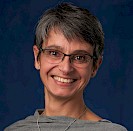 Name: Karina Ckless, PhD
Name: Karina Ckless, PhD
Institution/Company: SUNY Plattsburgh
Educational Background: BSc Biology - UNISINOS, Brazil
PhD Biochemistry - UFRGS, Brazil Postdoctoral training Department of Pharmacology - UFSC, Brazil
Postdoctoral training Department Pathology - Redox Biology - UVM, Burlington, VT
Field of Expertise: Grant Applications, Academia (PUI Institution)
Bio: I am a professor of Biochemistry at SUNY Plattsburgh, a primarily undergraduate institution (PUI) in upstate NY. In addition to teaching Biochemistry, I also teach scientific writing and Redox Biology courses for STEM majors. My research involves the study of reactive oxygen and nitrogen species and their impact on cell signaling. Currently, the focus of my research is the study of oxidative stress associated with inflammation and immune responses caused by nanomaterials. More recently, my research is also focusing on the development of new cellulose-based nanomaterials for potential biomedical applications as adjuvants.